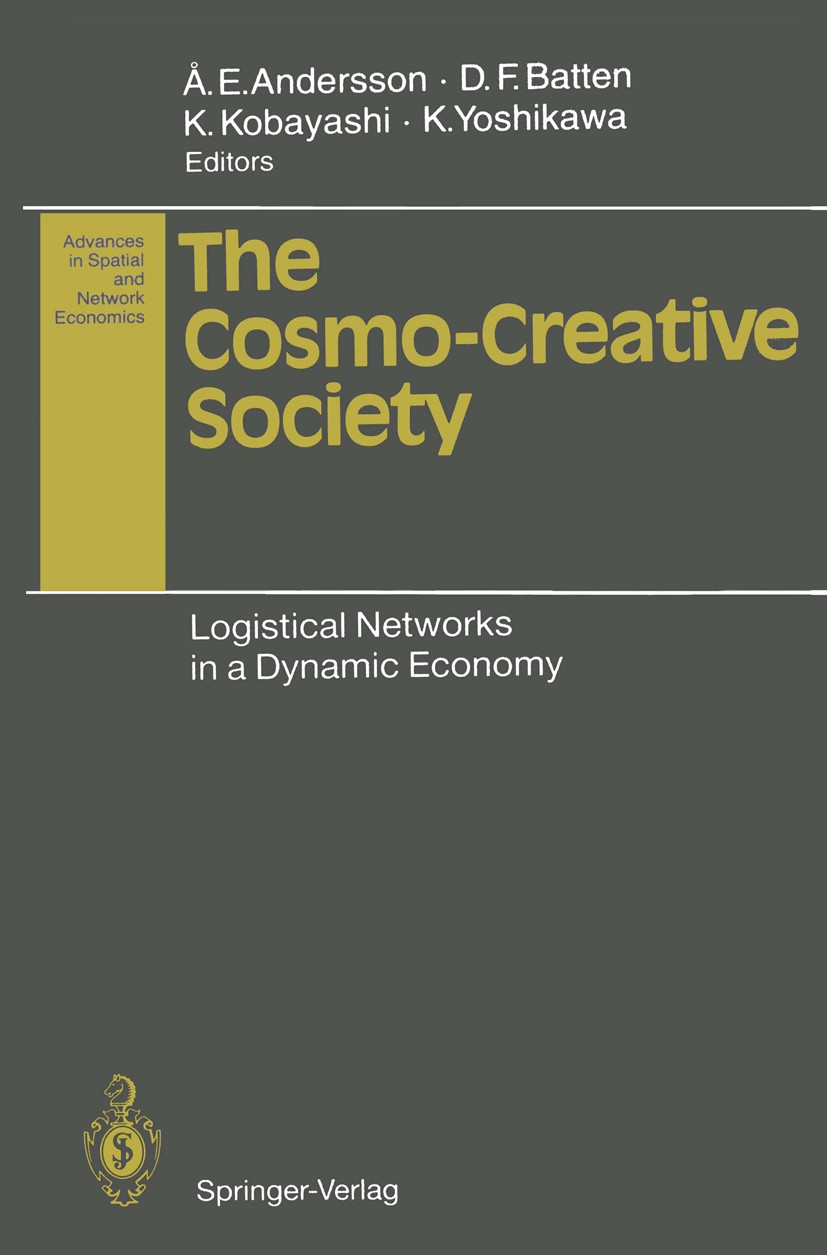| 書目名稱 | The Cosmo-Creative Society |
| 副標(biāo)題 | Logistical Networks |
| 編輯 | ?ke E. Andersson,David F. Batten,Kazuhiro Yoshikaw |
| 視頻video | http://file.papertrans.cn/907/906844/906844.mp4 |
| 叢書名稱 | Advances in Spatial and Network Economics |
| 圖書封面 |  |
| 描述 | Today, telecommunication systems are expanding and evolving at a remarkable rate, with the aid of fiber optics, satellites and comput- erized switchboard systems. Airline systems are providing faster and more efficient networks for world-wide human transportation. Com- puters are now generally accessible to virtually all industries and many households. But perhaps the most important factor is that education systems are expanding the knowledge base for city populations, thus resulting in increased efficiency in the use of computers, telecommuni- cations and rapid transportation systems. The revolutionary age of logistical networks is upon lIS. Logistical networks are those systems which facilitate the movement of knowl- edge, commodities, money, and people in association with thE; produc- tion or consumption of goods and services. Logistical networks form a set of important infrastructure which serve as hard and soft means to sustain all kinds of movement, transactions and diffusion within and between global networks of cities. Major structural changes in the re- gional and urban economy, culture and institutions are triggered by slow but steady changes in global logistical systems. |
| 出版日期 | Conference proceedings 1993 |
| 關(guān)鍵詞 | Communication; Creativity; Dynamische ?konomie; Infrastructure; Infrastruktur; Japan; Kommunikation; Kreati |
| 版次 | 1 |
| doi | https://doi.org/10.1007/978-3-642-78460-6 |
| isbn_softcover | 978-3-642-78462-0 |
| isbn_ebook | 978-3-642-78460-6Series ISSN 1430-9599 |
| issn_series | 1430-9599 |
| copyright | Springer-Verlag Berlin · Heidelberg 1993 |
 |Archiver|手機(jī)版|小黑屋|
派博傳思國際
( 京公網(wǎng)安備110108008328)
GMT+8, 2025-10-10 05:04
|Archiver|手機(jī)版|小黑屋|
派博傳思國際
( 京公網(wǎng)安備110108008328)
GMT+8, 2025-10-10 05:04


